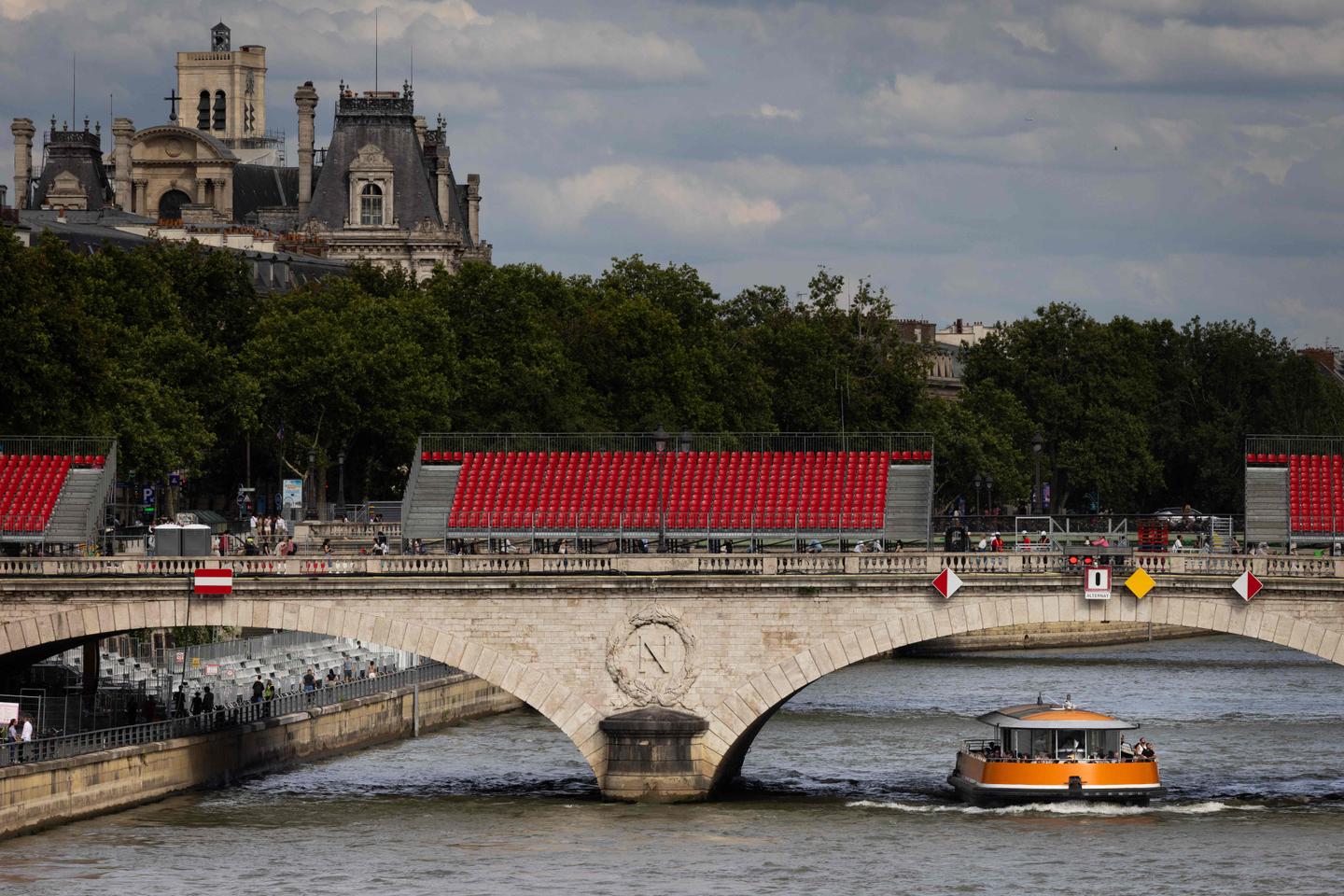


"We are ready." If the organizing committee is saying it, the French president is saying it – and even Le Monde is saying it – well then it must be true. After months of uncertainty about public transport, weeks of anxiety about water quality and years of your typical French incredulity, we are finally here. France and its capital city are welcoming the 2024 Summer Olympic Games. Not only that, but for the first time in the history of the Olympics, Friday, July 26's opening ceremony will take place outside a stadium, in what is set to be a spectacular show on the waters of the River Seine.
But (there's always a but with journalists isn't there? – sigh) will the Paris Olympics live up to the organizers' other promise, the main one? That of Games that will be accessible to all and enjoyed by all. Will these be the Games of Paris, whose residents are literally fleeing the capital's festivities and hoping to make a big profit out of it? Will these be the Games of the banlieues, Paris' underprivileged suburbs relegated on the other side of the périphérique ring road? With six sporting venues and the Olympic Village built in Seine-Saint-Denis, significant infrastructure efforts have been made to not exclude the territory and its residents. To what effect? Will these be the Games of tourists? International or national? This year, a significant proportion of visitors decided against traveling to Paris because of the Games. But the first real event, the arrival of the Olympic torch in mainland France through its southern port city of Marseille in May, showed that there is some appetite for a popular party. So what kind of Games will Paris 2024 turn out to be? Let's find out together, shall we?
The French tip
La scène, la Seine.
Do you know the difference between these two homonyms (pronounced "sen" like pen but with an "s")? The first one is the French word for stage and the second one is the name of the river on which the opening ceremony will take place. How about that? Now, we don't know much about the specifics of the ceremony at this point, but around us – Le Monde's offices are located right next to the Pont d'Austerlitz, where it is supposed to start from – hints that it will live up to the grandiose promise of its organizers are everywhere. Stands are erected on the river's magnificent bridges next to the city's most emblematic monuments, dancers are rehearsing on its banks and VIPs are flocking to Paris (did someone say Céline Dion?).
The practical tip
The opening ceremony starts at 7:30 pm on Friday and is to last almost four hours. But the area around the Seine has been closed down for days. Only a QR code, for those of us who reside or work here, allows you to come to the heart of the city, the river's banks.
If you're planning on moving around today, check the Paris metro's dedicated page before getting going, as many metro and RER train lines and stations are closed. Metro line 6, which crosses Paris from west to east through the south, will for instance be completely off today. If you're walking or biking, several bridges and roads will also be closed. Check out Anticiper les Jeux ("Anticipate the Games), the Interior Ministry's dedicated website to know which ones.
And for an unofficial yet quite accurate guide to taking public transport, check out this thread:
The sports tip
You would think that we wouldn't have one for you today since the opening ceremony usually marks the start of the competition, right? But the Olympics actually kicked off two days ago, notably with football and sevens rugby games.
Click here to access the competition's full schedule.
The non-Olympics tip
If you want to stay on topic and take a break from the hustle and bustle of the Olympics, you might consider a trip downriver, to French writer Emile Zola's home in Médan, 30 kilometers west of Paris. The house was recently refurnished identically after 10 years of renovation and next to it is a museum dedicated to the Dreyfus affair. In Médan, the writer and his contemporaries used to come "mainly to eat well, drink well, row or cycle, lie in the grass, and count trains." I will see you guys there.
The secret tip
Paris is hilly. Yes, really! It's no San Francisco, but the city counts a good number of buttes – la Butte Montmartre bien sûr – that offer magnificent views of the city free of charge. After 14 years of living in Paris, what still strikes me every single day as I cycle to the office, along the Père Lachaise cemetery, over the Austerlitz bridge with Notre-Dame to my right and the Pont de Bercy to my left, is how beautiful the city is (unoriginal, I know. But oh so very true). So while you're visiting, climb (or electric-cycle) up the Butte de Belleville (say hi to the Eiffel Tower), the Buttes Chaumont (in the parc), the Butte aux Cailles (in the 13th arrondissement), or any other one you can find (there are 12 in total) for a soothing panoramic view. Simple, efficient. And catch a bit of fresh wind while you're up there, it will come in handy in case of a heatwave.
The readers' tip
We'd love to hear about your experience of the Games. Reach out to us by email (writetous@lemonde.fr) or on our social media accounts: Instagram, X, Facebook, TikTok. We may publish your photos or comments in one of our daily guides.
The extra tip
Later this afternoon, Le Monde in English's team will follow the opening ceremony live. Join us to discover and comment on the show on our live blog (link to come).
A très bientôt on Le Monde in English!
